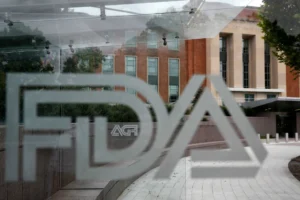
Two major vaccine meetings in the U.S. — one at the Centers for Disease Control and Prevention (CDC) and another at the Food and Drug Administration (FDA) — have been disrupted under the leadership of Health and Human Services Secretary Robert F. Kennedy Jr. The disruptions are raising concerns about potential delays, reduced access, and diminished transparency around vital vaccines, including those for seasonal flu and other serious diseases.
The CDC’s Advisory Committee on Immunization Practices (ACIP) postponed its February meeting, originally scheduled for this week, citing the need to “accommodate public comment.” This three-day session was set to evaluate the safety and effectiveness of vaccines for meningococcal disease — which is resurging — as well as RSV, flu, chikungunya, and mpox. It also included two key votes related to the Vaccines for Children program, which provides no-cost vaccines to children from low-income families.
ACIP typically meets three times a year, in February, June, and October. There’s currently no update on when or if the February meeting will be rescheduled, raising concerns about whether the delay could affect vaccine availability.
Additionally, the FDA recently canceled its March 13 meeting of the Vaccines and Related Biological Products Advisory Committee. The session was meant to determine the formulation for this fall’s flu vaccines. No reason was given for the cancellation.
In a statement to CNN, the FDA confirmed it will still issue guidance on the flu vaccine composition for the 2025–2026 season but did not clarify whether it would consult with advisors or hold the usual public discussions.
These developments come at a time when the U.S. is facing a severe flu season and a resurgence of measles, a preventable disease. Experts warn that growing vaccine hesitancy — potentially reinforced by the new HHS secretary — could make outbreaks worse and threaten public health.
Kennedy Questions Vaccine Advisers’ Credibility
Although Robert F. Kennedy Jr. claims he is not anti-vaccine, he has consistently raised doubts about the safety and effectiveness of vaccines, as well as the research and regulations that support their use. Financial disclosures reveal that Kennedy has earned income from law firms that sue vaccine manufacturers. He has also publicly criticized some of the experts advising federal agencies on vaccines.
During his confirmation hearings, Kennedy inaccurately alleged that 97% of members on the CDC’s vaccine advisory panel, the Advisory Committee on Immunization Practices (ACIP), had conflicts of interest. In reality, ACIP has strict rules in place to avoid such conflicts, and all members go through a thorough vetting process to ensure impartiality. Similarly, members of the FDA’s vaccine committee must follow rigorous conflict-of-interest guidelines and must declare any potential conflicts during public meetings.
Former CDC Director Dr. Tom Frieden recently addressed Kennedy’s false claims, calling them among the most harmful myths circulating about vaccines. Frieden clarified that the 97% figure referenced a 2009 audit conducted during his time as CDC director. The audit revealed that 97% of advisers had at least one incomplete response on lengthy disclosure forms — such as forgetting to initial a page — which does not equate to an actual conflict of interest.
“I really think that this is classic misinformation,” Frieden told CNN.
He also expressed concern about the postponed ACIP meeting, warning that it would likely trigger more misleading claims about the panel’s integrity. “ACIP, made up of pediatricians, public health experts, and parents, is the gold standard for open, transparent vaccine recommendations,” Frieden wrote in a LinkedIn post.
With neither the FDA nor CDC vaccine committees currently offering input on regulatory decisions, healthcare professionals fear delays and reduced access to crucial vaccines.
Dr. Tina Tan, president of the Infectious Diseases Society of America, emphasized the urgency of rescheduling the canceled FDA meeting on the 2025–2026 flu vaccine. “Canceling this meeting means vaccine makers may not have the information and time needed to produce and distribute targeted vaccines ahead of flu season,” she said. “If the FDA doesn’t act soon, lives that could be protected by vaccination will be lost.”
On February 20, an open letter addressed to Kennedy by Acting CDC Director Dr. Susan Monarez, Senator Bill Cassidy, and the Partnership to Fight Infectious Disease urged the immediate rescheduling of the ACIP meeting. “Each ACIP meeting is vital,” the letter read. “Infectious diseases are constantly evolving, and vaccines are among our best tools to keep up.”
Flu Shot Plans in Jeopardy
Flu vaccine production is a time-sensitive and complex process, especially since most are made using viruses grown in chicken eggs — a method that takes several months. The timely selection of flu strains is critical to ensure vaccines are available before the start of the season.
In the U.S., flu vaccines must include virus strains officially selected by the FDA, which typically makes its decisions after meetings with global health partners. This process is coordinated with the World Health Organization’s (WHO) Global Influenza Surveillance and Response System (GISRS), which includes regulatory labs and research centers in the U.S., UK, Japan, China, Russia, and Australia.
Both the CDC and FDA participated in this week’s GISRS meeting, according to WHO. “The U.S. did participate in this meeting,” confirmed Dr. Maria Van Kerkhove, WHO’s technical lead for COVID-19. “We want to be clear — the U.S. is still actively contributing to the global effort.”
Following the meeting, WHO announced the recommended strains for next season’s vaccines, including a replacement for the H3N2 component, which only partially matched circulating viruses this past season.
“The match isn’t perfect, but it’s the best preventative option we have against the flu,” said Prof. Ian Barr, deputy director at the Victorian Infectious Diseases Reference Laboratory and GISRS member.
Despite international efforts moving forward, uncertainty within U.S. health agencies raises concerns that vaccine production may not proceed smoothly — potentially compromising public health preparedness.

FDA Skips Vaccine Advisory Meeting, Raising Concerns Over Transparency and Expert Involvement
Typically, after the World Health Organization (WHO) announces recommended flu strains, the FDA’s 17-member vaccine advisory committee (VRBPAC) meets to publicly review the recommendations, discuss them, and offer its own endorsement. While the FDA has the final say and can differ from its advisers, the agency generally follows their guidance.
This year, however, the FDA has announced it will skip the advisory meeting. While the agency says it will still issue recommendations to manufacturers, it has not clarified how or when those decisions will be made.
Dr. LJ Tan, chief policy and partnerships officer at the vaccine advocacy nonprofit Immunize.org, warned, “If there’s no FDA-recommended strains, U.S. manufacturers are kind of stuck.”
Despite the canceled meeting, major flu vaccine manufacturers told CNN they do not expect production delays. Sanofi said production for the 2025–2026 flu season has already begun and it will be ready to support final strain selection as needed. GSK echoed similar sentiments, affirming ongoing collaboration with the FDA.
Still, experts argue that bypassing the VRBPAC meeting removes an essential layer of public discourse and accountability. “Canceling the meeting strips Americans of the transparency and debate that normally accompanies these decisions,” said Dr. Tan. “It’s very dangerous to bypass your expert advisory committee.”
Transparency Under Question
During his Senate confirmation hearings, Health and Human Services Secretary Robert F. Kennedy Jr. pledged to bring “radical transparency” to the department. “If we want Americans to restore trust in public health agencies, we need transparency,” Kennedy said.
Vaccine experts say canceling these public advisory meetings contradicts that promise.
Dr. Stanley Perlman, a VRBPAC member and immunologist at the University of Iowa, emphasized the importance of these discussions being public. “We may disagree on some things, but people get to hear how we reached our conclusions,” he said. He worries the public will now miss crucial insight into how decisions about vaccine strains are made.
Dr. William Moss, director of the International Vaccine Access Center at Johns Hopkins Bloomberg School of Public Health, shared that concern. “It’s like taking experts out of the conversation,” he said. “These decisions are complex, and open, expert-led discussions are critical.”
Uncertainty Ahead
The FDA has not explained how it will choose flu strains for this fall’s vaccines. If it follows WHO’s recommendations, the U.S. will still be relying on data and coordination from the organization — despite former President Donald Trump’s directive to withdraw U.S. support from the WHO and stop sharing information.
“It’s all part of the chaos,” said Dr. Moss. “Whether it’s intentional or just incompetence, it’s creating confusion at a critical moment for public health.”
